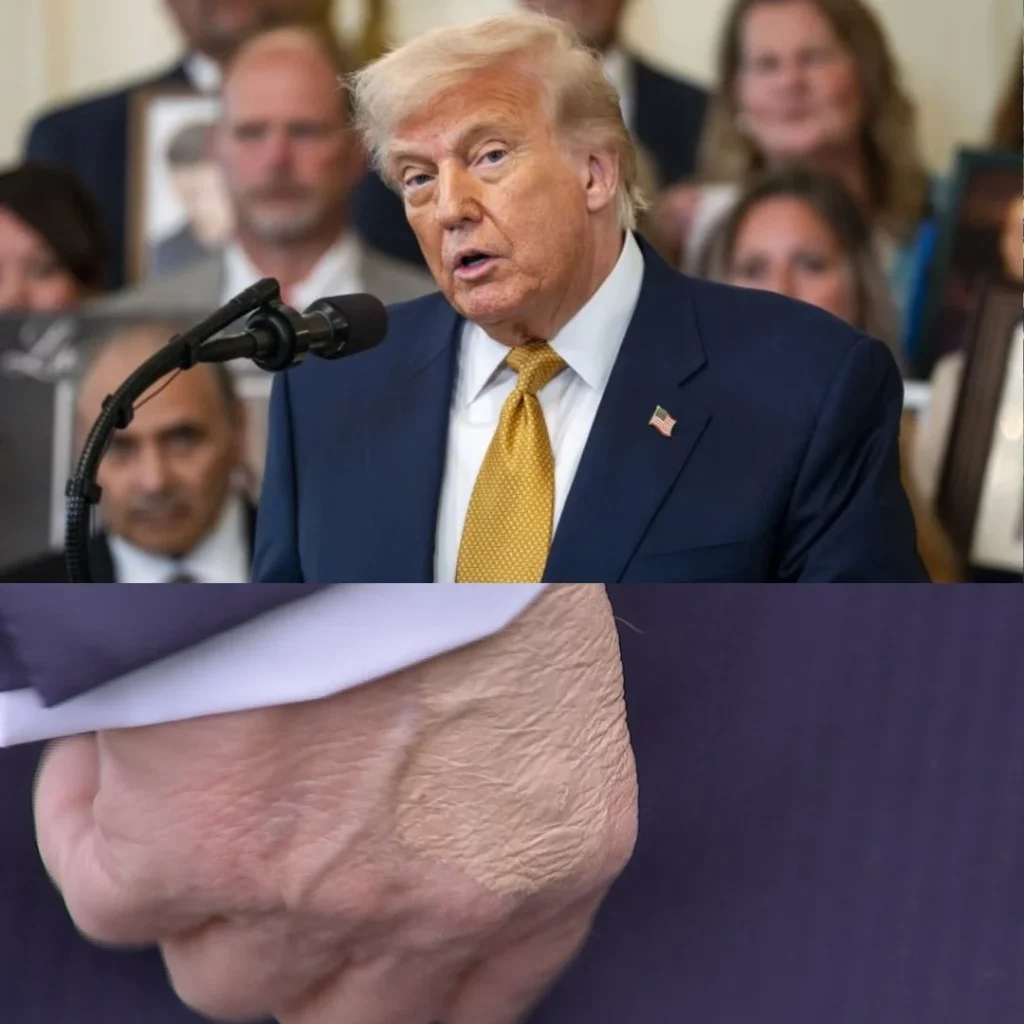President Donald J. Trump, now 79, has been diagnosed with chronic venous insufficiency (CVI), a widespread but generally harmless vein issue.
This came to light after recent concerns about swollen ankles and hand bruising sparked public curiosity.
On Thursday, July 17, 2025, White House Press Secretary Karoline Leavitt shared that Trump underwent vascular tests, including Doppler ultrasounds and an echocardiogram, due to mild leg swelling.
The results confirmed CVI, with no signs of serious conditions like deep vein thrombosis or heart problems.
Lab tests were normal, and no kidney or systemic issues were found. Doctors say Trump feels no discomfort and remains in good health.
Understanding the Condition
CVI occurs when leg vein valves weaken, causing blood to pool instead of returning efficiently to the heart.
This is common among older adults and can lead to swelling or skin changes in the lower legs.
While it’s not typically dangerous, untreated cases might cause discomfort or, rarely, skin ulcers.
For Trump, early detection means the risk is low. Simple steps like wearing compression stockings, elevating legs, or walking can help manage it effectively.
Experts note that about 1 in 20 adults deal with CVI, making it a familiar condition for those over 50.
Explaining the Bruising
Photos showing bruises on Trump’s hand raised eyebrows. Leavitt explained that doctors attribute this to minor skin irritation, likely from frequent handshakes and his regular use of aspirin, a blood thinner for heart health.
Medical professionals agree that such bruising can happen in older people with thinner skin, especially with blood thinners and repeated contact.
This finding eases concerns that the marks signal a deeper issue.
Health and Age in Focus
At 79, Trump is one of the oldest U.S. presidents, drawing attention to his health.
His April 2025 physical declared him “excellent health,” with strong physical and mental fitness for leadership.
The CVI diagnosis comes amid comparisons to former President Biden, who stepped down in 2024 over age-related concerns.
This transparency highlights how even minor ailments get magnified for leaders of advanced age, though officials stress CVI poses no major threat.
Looking Forward
If symptoms worsen, treatments like sclerotherapy, laser therapy, or surgery might be considered, though that’s rare.
For now, lifestyle changes are the focus to support vein health and prevent progression.
The White House’s openness about this condition reflects a commitment to clarity, especially during politically charged times.
It serves as a reminder to monitor health closely, particularly for public figures, but the current outlook remains positive.
More News: Kenya Protests Intensify as Ruto Faces ‘Ruto Wantam’ Cry























